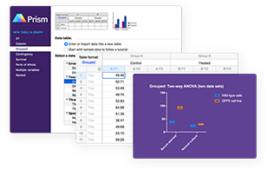 Over the last 1000 years, temperature differences between the Northern and Southern Hemispheres were larger than previously thought. Using new data from the Southern Hemisphere, researchers have shown that climate model simulations overestimate the links between the climate variations across the Earth with implications for regional predictions. These findings are demonstrated in a new international study coordinated by Raphael Neukom from the Oeschger Centre of the University of Bern and the Swiss Federal Research Institute WSL and are published in the journal Nature Climate Change.
Over the last 1000 years, temperature differences between the Northern and Southern Hemispheres were larger than previously thought. Using new data from the Southern Hemisphere, researchers have shown that climate model simulations overestimate the links between the climate variations across the Earth with implications for regional predictions. These findings are demonstrated in a new international study coordinated by Raphael Neukom from the Oeschger Centre of the University of Bern and the Swiss Federal Research Institute WSL and are published in the journal Nature Climate Change.
The Southern Hemisphere is a challenging place for climate scientists. Its vast oceans, Antarctic ice, and deserts make it particularly difficult to collect information about present climate and, even more so, about past climate. However, multi-centennial reconstructions of past climate from so-called proxy archives such as tree-rings, lake sediments, corals, and ice-cores are required to understand the mechanisms of the climate system. Until now, these long-term estimates were almost entirely based on data from the Northern Hemisphere.
Over the past few years, an international research team has made a coordinated effort to develop and analyse new records that provide clues about climate variation across the Southern Hemisphere. Climate scientists from Australia, Antarctic-experts, as well as data specialists and climate modellers from South and North America and Europe participated in the project. They compiled climate data from over 300 different locations and applied a range of methods to estimate Southern Hemisphere temperatures over the past 1000 years. In 99.7 percent of the results, the warmest decade of the millennium occurs after 1970.
Surprisingly, only twice over the entire last millennium have both hemispheres simultaneously shown extreme temperatures. One of these occasions was a global cold period in the 17th century; the other one was the current warming phase, with uninterrupted global warm extremes since the 1970s. “The ‘Medieval Warm Period,’ as identified in some European chronicles, was a regional phenomenon,” says Raphael Neukom. “At the same time, temperatures in the Southern Hemisphere were only average.” The researchers ascribe these large differences to so-called “internal variability.” This term describes the chaotic interplay of the ocean and atmosphere within the climate system that leads to temperatures changing in one or the other direction. Regional differences in these fluctuations appear to be larger than previously thought.
The scientists discovered that most climate models are unable to satisfactorily simulate the considerable differences between the hemispheres. The models appear to underestimate the influence of internal variability, in comparison with external forcings like solar irradiation, volcanic eruptions or human greenhouse gas emissions. “Regional differences in the climatic evolution of the next decades could therefore be larger than the current models predict,”says Neukom.




